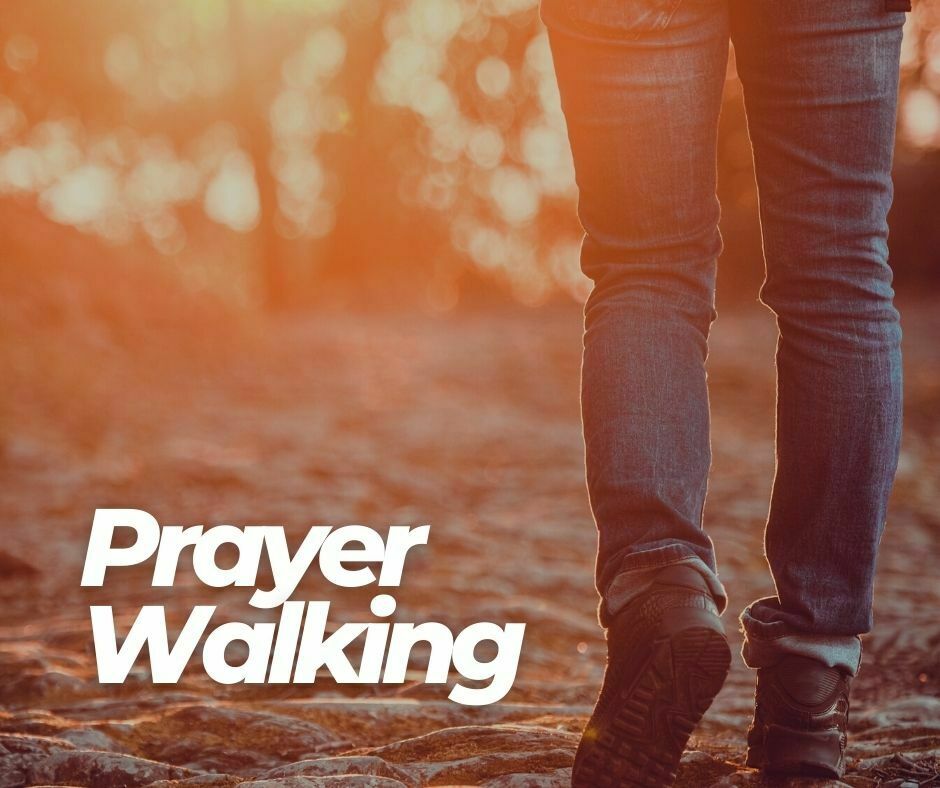Spiritual Practices
Spiritual Practices help us to connect with God, Jesus and the Holy Spirit as well as to other people. They root us and ground us in God’s Word and the Fruit of the Spirit (Galatians 5:22-26). There are a variety of different spiritual practices. This is not an exhaustive list. Sometimes a spiritual practice you have been doing for a while doesn’t speak to you during a certain period of your life. Try something new. Experiment. If you are able, light a candle before you begin to acknowledge Jesus’ presence. Set up a space or a place to be intentional about connecting with God through Jesus.

God Moments
In the busyness of life, we are unable to see God at work in our lives and in the world. Take a picture, write a poem or a short paragraph about where you saw God today. Feel free to post pictures or your writings on the bulletin board by the south sanctuary entrance. You are also welcome to post on Facebook or Instagram and tag Zion Lutheran Church Stratford and use #ZionGodMoments.
Mantra
A mantra involves repeating a word or phrase that keeps your attention focused on God. It is a way to enter a time of prayer, to center yourself, or to relax or be still. Examples of mantra include, “Lord, Jesus Christ, be present now,” “Be still and know that I am God.” or “Lord, have mercy on me.”
Daily Examen
(St. Ignatius of Loyola)
The Examen is a method of reviewing your day in the presence of God. It’s actually an attitude more than a method, a time set aside for thankful reflection on where God is in your everyday life. Take these few moments to reflect on these five steps. St. Ignatius encouraged God’s people to do this at least 2 times a day.
- Become aware of God’s presence.
- Review the day with gratitude.
- Pay attention to your emotions.
- Choose one experience or event of the day and pray from it.
- Look toward tomorrow.
St. Ignatius encouraged people to talk to Jesus like a friend. End the Daily Examen with a conversation with Jesus. Ask forgiveness for your sins. Ask for his protection and help. Ask for his wisdom about the questions you have and the problems you face. Do all this in the spirit of gratitude. Your life is a gift, and it is adorned with gifts from God.
Centering Prayer
For most people, the best posture is sitting comfortably with both feet on the floor, hands resting on the lap, and eyes gently closed. The aim is to let the body rest deeply during this time, wholly relaxed and supported.
Take a moment to quiet down, closing your eyes as necessary. Let faith and love of God’s presence be at the center.
To dwell in this state of Presence, choose a word or phrase (i.e. love, hope, grace, Abba, peace, or “Jesus Christ, Son of God, died on the cross for my sins” or “Lord Jesus Christ, Son of God, have mercy on me a sinner”) as a symbol that expresses your intention to be with God. Silently repeat this word or phrase as you slowly breathe in and out.
Whenever you become aware of anything else (thoughts, feelings, sounds, sensations, etc.) simply, gently return to God’s presence with the use of your word or phrase.
Journaling
Journaling is a spiritual practice of encountering God through attentive writing. Freely express what comes to your mind; don’t worry about grammar, spelling, or punctuation. Journaling can become a prayer-and-communication time with God.
Morning Pages – write anything and everything on 2-3 pages each morning. Just get it out!
Gratitude journal – List three things you are thankful for. Describe these three things in detail. What led to these things? What else are you grateful for?
Prompts – Answer a question to get you started.
- What do you want?
- What is stopping you?
- What makes you fearful?
- What really excites you?
- Who is God calling you toward?
- What is your purpose today?
TRIP Pattern of Prayer
TRIP is an acronym for Thanks, Regret (or Repentance), Intercession and Purpose (or Plan of Action). The TRIP form of prayer, patterned after Martin Luther’s way of praying, was developed by Walter and Ingrid Trobisch and then adapted by Mount Carmel Ministries to help people pray the Daily Texts.
Read the scripture text four times. Before each reading, you will ask one of the TRIP questions. Then a period of silence following the reading. Journal your thoughts, reflections, and prayers. If using in a small group, invite participants to talk about and listen to each other about their reflections, thoughts, and prayers.

Sabbath-Keeping
Sabbath-keeping is a normal rhythm of life for those in the Judeo-Christian tradition. It is a time to pause and step away from the busyness of the world to reconnect with God, family, friends, community and creation. Pick a specific time each week for Sabbath-keeping. Some families practice Sabbath-keeping from Friday evening to Saturday evening. Phones, emails, television and social media are put away for 24 hours. Instead, families spend time together reading, playing games, walking, hiking, visiting neighbors or homebound community members, sharing meals with each other, making crafts, and praying together. Some families enjoy not having 24 hours that are scheduled with activities and busyness.
Lectio Divina or Dwelling in the Word
Lectio Divina is Latin for “divine reading.” Lectio Divina is a slow, contemplative praying of the scriptures and other sacred texts. You enter the text to experience it from within. You “chew” on the words, letting the words stir inside of you and through you. This practice is about listening intently and cultivating deep silence.
Lectio (read) – read the text slowly and stop wherever you feel drawn or touched, feel the need to stay with, or feel the need to consider.
Meditatio (meditate) – consider that portion of the text, what it means particularly for you and your life at the moment.
Oratio (speak) – talk to God, respond to what the text is saying to you and bring your concerns, questions, joys, desires, confessions and petitions to God.
Contemplatio (contemplate) – be still, be with God without words, be present to God.
It is recommended that you read the text aloud several times with a time of silence and prayer between each reading.
Prayer Walking

Prayer walking is simply walking and talking with God.
Start simple. Wear comfortable walking shoes and clothing appropriate for the weather. Carry a small pocket testament or Bible or use an app on your phone. Some people like to carry a small notebook and pen/pencil to write down thoughts, prayers, or what God is telling you. Try for once a week or once a month to get started. You can also walk with a friend and pray a loud as you walk together.
Some suggestions:
- Sing aloud
- Play quiet, prayerful music (Check out Zion Lutheran Stratford’s Spotify Playlists)
- Pray with your eyes open
- Pray with scripture (use a mantra while walking)
- Ask God all your questions
- Tell Jesus your troubles and what is on your heart
- Talk to God about what you see around you
- Be silent. Listen for the Holy Spirit stirring you.
Breath Prayer
Allow the rhythm of inhaling and exhaling to shape, carry, and express the prayer. Sit in a quiet place and speak the word or phrase silently or aloud. As you repeat the prayer, allow the words to connect with the rhythm of your breath.
Sample breath prayers:
- Jesus (inhale), let me feel your love (exhale)
- O Lord (inhale), show me your way (exhale)
- Holy one(inhale), heal me (exhale)
- Jesus, Alleluia (inhale), have mercy (exhale)
- Holy Wisdom (inhale), guide me (exhale)
- Jesus Christ, (inhale) son of God (exhale), have mercy (inhale) on me.
Prayer Beads
Generosity
As the people of God, we are also managers/stewards of God’s resources and provisions. Generosity is a spiritual practice along with gratitude and compassion. Generosity strengthens our relationship with God and other people. Generosity can be the gift of money, time, or skills. At the heart of generosity are the greatest commandments to “love the Lord with all of your heart, mind, and soul and to love your neighbors as yourself.”
